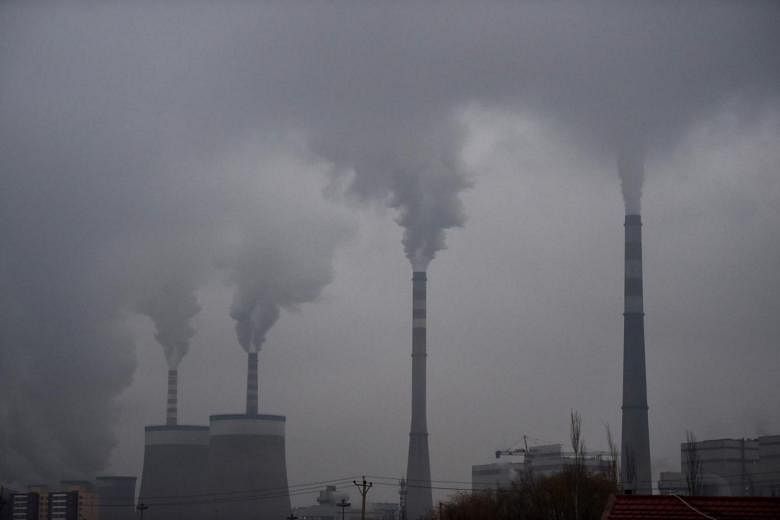BONN (Germany) • Carbon dioxide emissions are set to rise this year after a three-year pause, scientists said at United Nations climate talks, warning that "time is running out", even as White House officials used the occasion to champion the fossil fuels that drive global warming.
Carbon dioxide emissions, flat since 2014, were forecast to rise 2 per cent this year, dashing hopes they had peaked, scientists reported at 12-day negotiations in Bonn that will end on Friday.
"The news that emissions are rising after a three-year hiatus is a giant leap backwards for humankind," said Dr Amy Luers, a climate policy adviser to former United States president Barack Obama and executive director of Future Earth, which co-sponsored the research.
Global carbon dioxide emissions for 2017 were estimated at a record 41 billion tonnes.
For much of the 21st century, global carbon dioxide emissions increased at a rate of more than 2 per cent per year, as rapidly industrialising countries such as China and India built hundreds of coal plants and put millions of new cars on the road.
The link between economic development and emissions growth seemed inextricable.
Then came an unexpected twist: From 2014 to 2016, industrial emissions barely grew at all, even as the global economy continued to expand. Some observers wondered if the sharp cost reductions in renewable energy, combined with the growing push to tackle climate change in the US, Europe and China, had fundamentally altered the world's carbon trajectory.
This year's rebound in emissions suggests that it is too soon to celebrate. Some scientists, for example, have concluded that the planet's surface has already warmed enough - 1.1 deg C on average - in the last 150 years to lock in the disintegration of the West Antarctic ice sheet, which holds enough frozen water to lift global oceans by 6m to 7m.
"Time is running out on our ability to keep warming below 2 deg C, let alone 1.5 deg C," said lead author Corinne Le Quere, director of the Tyndall Centre for Climate Change Research at the University of East Anglia.
Meanwhile, more than 15,000 scientists warned that carbon emissions, human population growth and consumption-driven lifestyles were poisoning the planet and depleting its resources.
"We are jeopardising our future," they wrote in a comment titled World Scientists' Warning To Humanity: A Second Notice, which echoed a similar open letter in 1992.
That did not discourage US officials from making a case for fossil fuels at the UN negotiations at its side event titled "The Role of Cleaner and More Efficient Fossil Fuels and Nuclear Power in Climate Mitigation".
Flanked by Mr Francis Brooke from the office of US Vice-President Mike Pence, and senior representatives of American energy companies, Mr George David Banks, a special energy and environment assistant to US President Donald Trump, addressed a packed room where protesters shouted: "You're liars!" and "There's no clean coal!"
The 196-nation Paris Agreement calls for capping global warming at 2 deg C below pre-industrial levels. The US is the only country that has opted to remain outside the Paris Agreement.
AGENCE FRANCE-PRESSE, NYTIMES

